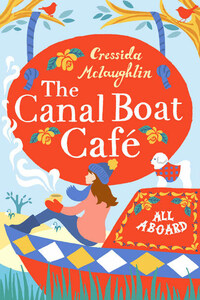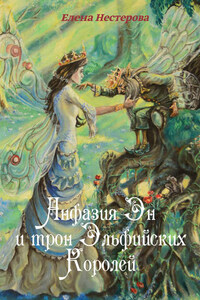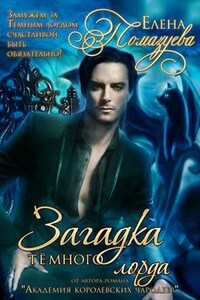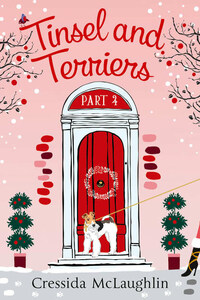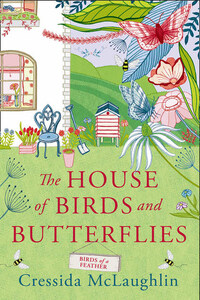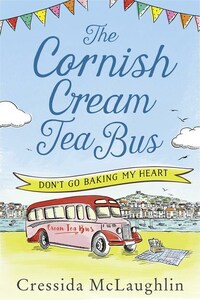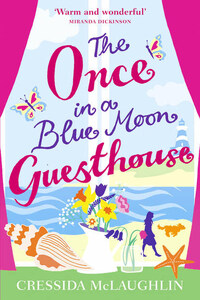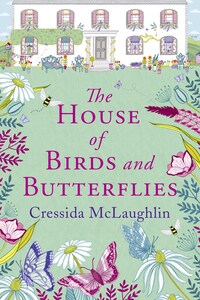Harper
An imprint of HarperCollinsPublishers Ltd
The News Building
1 London Bridge Street
London SE1 9GF
www.harpercollins.co.uk
First published in Great Britain by Harper 2016
Copyright © Cressida McLaughlin 2016
Cover layout design © HarperCollinsPublishers Ltd 2016
Cover illustration by Alice Stevenson
Cressida McLaughlin asserts the moral right to be identified as the author of this work.
A catalogue copy of this book is available from the British Library.
This novel is entirely a work of fiction. The names, characters and incidents portrayed in it are the work of the authorâs imagination. Any resemblance to actual persons, living or dead, events or localities is entirely coincidental.
All rights reserved under International and Pan-American Copyright Conventions. By payment of the required fees, you have been granted the non-exclusive, non-transferable right to access and read the text of this e-book on screen. No part of this text may be reproduced, transmitted, down-loaded, decompiled, reverse engineered, or stored in or introduced into any information storage and retrieval system, in any form or by any means, whether electronic or mechanical, now known or hereinafter invented, without the express written permission of HarperCollins.
Ebook Edition © February 2016 ISBN: 9780008164256
Version: 2016-01-12
As Summer Freeman turned into the square of concrete that proudly advertised itself as Willowbeckâs car park, her hands gripped the steering wheel, her fingers red from the cold.
It looked the same.
It had the same faded lines marking the spaces, the same notice above the pay and display machine reminding her that parking was free between November and March, the same wooden signpost with arrows pointing to âThe Black Swanâ, âThe River Great Ouseâ, âThe Towpathâ. A thin sliver of frost topped the arrows, giving them a Christmassy flourish even though it was mid-February.
There was no arrow pointing to âThe Canal Boat Caféâ, something Madeleine, Summerâs mother, had always grumbled about. Why should the pub get a sign, when weâre as much a public eating establishment as they are? It had been the same argument, over and over, her mum only half-joking. Madeleine had thrived on the competition between her and the pubâs owners, Dennis and Jenny Greenway, at least until their relationship had changed irreversibly.
Summer parked in the farthest corner, next to the butcherâs van, as if she wanted to hide her presence from anyone who might be passing. She had thought about Willowbeck a lot in the last eight months, its beauty and buzz coming to her in pictures as vivid as photographs, but she had never got as far as the question of returning. It was a forty-minute drive from Cambridge, where she lived, and in the opposite direction to the studio where she worked as a sign-writer. But the journey north that morning, past the imposing outline of Ely Cathedral, was one that she could do in her sleep, even though it had been so long since sheâd last taken the route. Her mum had owned the café, and now it was hers, but she had abandoned it like a broken toy, the memories, the thought of taking her mumâs place, too painful to consider.
She stepped out of the car, her breath misting, and wrapped her red wool coat tightly around her, folding her arms across her chest. She locked the old Polo and walked slowly across the car park, her steps echoing in the February morning quiet. She wished that sheâd brought Latte with her. The young Bichon Frise always lifted Summerâs spirits, but she didnât know exactly what she was going to face, and she hadnât wanted to risk her little dog being in the way, or not knowing what to do with her.
Summer stood on the road, facing the river.
To her right was the small row of shops. She could see only the backs of them now but she knew they were the butcherâs, owned by Adam and his son Charlie, the newsagentâs that sold more Willowbeck postcards than it did newspapers, and a gift shop. Summer loved the soft pastels, the cosiness of the shelves of candles, cushions, and door-signs with slogans about dogs and life on the river. She had a sign on the wall of her tiny Cambridge flat that her mum had bought her. It read: Iâd rather be on my boat. Over the last eight months, Summer hadnât agreed with the sentiment, but now her hand had been forced.
To her left stood The Black Swan. It was a big cream building, the paintwork around the doors and windows black and glossy, the gentle slope of grass that led towards the river dotted with picnic tables. In front of her was Willowbeckâs moorings, big enough for six narrowboats moored bow to stern along the towpath. Four of the moorings were residential, and one of those was her motherâs.
